Barry Gray on WMCA New York interviews Malcolm X. Malcolm X discusses his meeting with Fidel Castro in Harlem and systemic injustice on or about September 20, 1960.
Image: Phillie Casablanca, CC BY 2.0
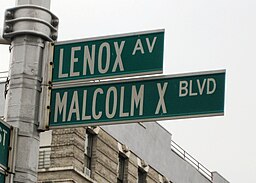
Barry Gray on WMCA New York interviews Malcolm X. Malcolm X discusses his meeting with Fidel Castro in Harlem and systemic injustice on or about September 20, 1960.
Image: Phillie Casablanca, CC BY 2.0

In Esquire’s July 1968 issue, published just after the death of Martin Luther King, Jr., the magazine talked to James Baldwin about the state of race relations in the country. We’ve republished the interview in full—and his words are incredibly relevant today.
Read the landmark 1968 Q&A on race in America.
Image: U.S. Information Agency. Press and Publications Service. (ca. 1953 – ca. 1978), Public domain, via Wikimedia Commons

Made available by Netflix (not known how long) this is a don’t miss documentary
Image: Stephanie Moreno/Grady College of Journalism and Mass Communications for Peabody Awards/University of Georgia, CC BY-SA 2.0
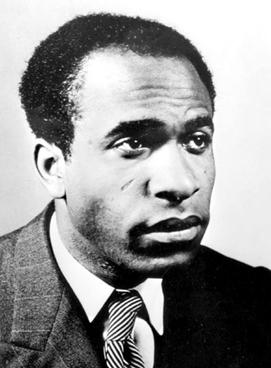
This video is a simple explanation of Frantz Fanon’s book, Black Skin, White Masks.
Re featured image: There is no free-license equivalent, the image is widely available and has no commercial value, and is being used for educational purposes to illustrate an article about the subject., CC0, via Wikimedia Commons
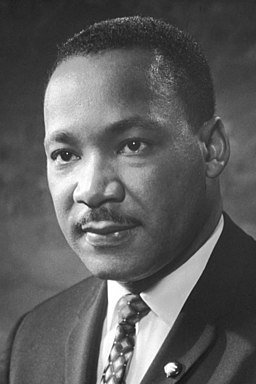
The “Letter from Birmingham Jail”, also known as the “Letter from Birmingham City Jail” and “The Negro Is Your Brother”, is an open letter written on April 16, 1963, by Martin Luther King Jr.
Image: Nobel Foundation, Public domain, via Wikimedia Commons
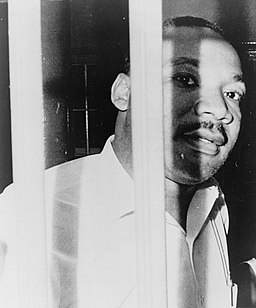
Dr. King was awarded the Nobel Peace Prize for his nonviolent campaign against racial segregation, a Prize which he accepted on behalf of the civil rights movement. The Nobel Lecture is a requirement for the Nobel Prize.
Image: English: Photographer unknown. Published by UPI., Public domain, via Wikimedia Commons
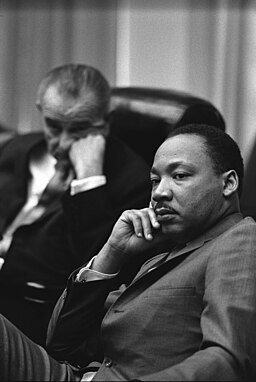
Because the brother said more than just, “I have a dream”.
Image: Yoichi Okamoto, Public domain, via Wikimedia Commons
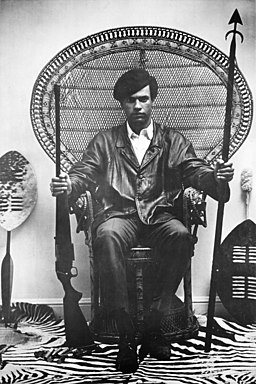
Reporters from the national and international news media talk with Mr. Newton, leader of the Black Panther Party for Self-Defense, about his personal and political philosophy. Also interviewed is the Black Panther Party attorney Charles R. Garry, Newton’s sister and Newton’s fianc_e, unnamed for their personal safety. Recorded March 7, 1968 in a detention cell at the Alameda County Courthouse.
Image attribution: Blair Stapp, Public domain, via Wikimedia Commons
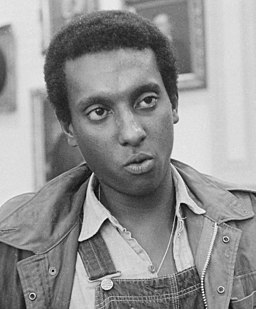
During a lecture to students at Howard University, Stokely Carmichael speaks about the movement of black people toward unity with a clear, common ideology based on science. He stresses black people must put theory into practice – organize and take action. He speaks about the differences between revolutionary and reform movements; Pan-Africanism; the All African People’s Revolutionary Party; scientific socialism; nkrumahism; capitalism; and imperialism.
Image attribution: See page for author, Public domain, via Wikimedia Commons (https://commons.wikimedia.org/wiki/File:Kwame_Ture_at_a_1966_Mississippi_press_conference_(cropped).jpg)
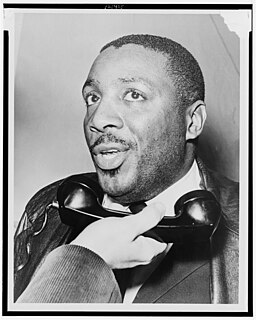
Asking the question “Is It Too Late?”, Black Journal surveys the attitudes of Black Americans towards politics, integration, segregation, self-determination, economics, education, movements, leaders, and leadership. The participants, who, in addition to answering queries, each make statements, are: Rev. Ralph Abernathy, Imamu Amiri Baraka (LeRoi Jones), Dr. James Cheek, Rev. Albert Cleage, Rep. Ronald Dellums (D-California), The Honorable Elijah Muhammad, Dick Gregory, Dorothy Height, Vernon Jordan, and Dr. John Morsell.
